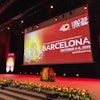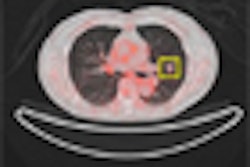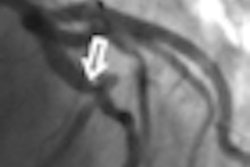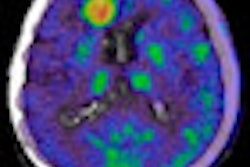
NEW YORK (Reuters Health), Aug 9 - Drinking the bowel prep solution in two split doses provides the best colon cleansing before colonoscopy, a large study has shown.
Splitting the dose worked better whether patients drank the standard four liters of polyethylene glycol (PEG), or two liters of a better-tasting high-molecular weight PEG solution with ascorbic acid, the Italian research team reports.
In fact, the new low-volume solution turned out to be just as effective as the high-volume drink that many patients dislike, according to the report in the August issue of Gastrointestinal Endoscopy.
The study also showed that "the sooner the procedure is performed from the last fluid intake, the higher the chance of finding an adequate degree of bowel cleansing." Optimally, the colonoscopy should be done no more than eight hours after the patient's last fluid intake, lead author Dr. Riccardo Marmo of Hospital "L. Curto," Polla, and colleagues say.
The 868 patients in the randomized trial followed one of four protocols. They drank either a standard solution of PEG 4000 plus electrolytes (SELG 1000; Promefarm, Italy) diluted in four liters of water, or a two-liter solution of high-molecular weight PEG (macrogol 3350) plus electrolytes and 4.70 g ascorbic acid (Moviprep; Norgine Ltd, Harefield, U.K.).
In each group, half the patients drank all the solution the evening before routine elective colonoscopy, while the others took half the dose the afternoon before and half early the following morning, before the procedure.
Overall, doctors gave a rating of good or excellent for bowel cleansing in 75.2% of patients in the split-dose group versus 43.0% of those who drank the entire solution the night before (p = 0.00001).
On a scale of 6 (poor) to 24 (excellent), mean cleansing scores were 20.4 for split dosing and 16.4 for nonsplit dosing 16.4 (p = 0.00001). However, the scores declined significantly after 6 to 8 hours from the last fluid intake.
Aborted exams (due to inadequate cleansing) occurred less often in the split-dosage arm (6.9% versus 21.2%, p < 0.0001).
Male sex (odds ratio 1.45) and non-split-dosage intake schedule (OR 2.08) were the only independent predictors of poor bowel cleansing.
Both bowel prep solutions were well tolerated, with generally mild and infrequent side effects, and compliance was excellent in both groups. Patients were more likely to rate the taste of the PEG/ascorbic acid solution as good or acceptable than the standard PEG (54% versus 47%, p = 0.04).
Earlier this year investigators reported that a split-dose regimen was superior to an evening regimen for morning colonoscopies (see Reuters Health article of June 24).
"The present study," Dr. Marmo's team writes, "is the first to demonstrate that the advantage of split-dosage intake is true also for low-volume solutions."
Their data also demonstrate that "colonoscopies should be scheduled in the late morning or in the afternoon to allow patients to drink the second half of the dose on the day of the planned procedure," the researchers say.
Source: http://link.reuters.com/myb63n
Gastrointest Endosc 2010;72:313-320.
Last Updated: 2010-08-06 18:44:26 -0400 (Reuters Health)
Related Reading
Morning prep leaves cleaner gut for afternoon colonoscopy, July 16, 2010
Split-dose regimen is effective bowel prep for a.m. colonoscopy, June 25, 2010
Better to have bowel prep and colonoscopy on the same day: study, May 12, 2010
Patients who think bowel prep was inadequate are probably right, May 3, 2010
One-day bowel prep eases VC for patients, providers, March 7, 2010
Copyright © 2010 Reuters Limited. All rights reserved. Republication or redistribution of Reuters content, including by framing or similar means, is expressly prohibited without the prior written consent of Reuters. Reuters shall not be liable for any errors or delays in the content, or for any actions taken in reliance thereon. Reuters and the Reuters sphere logo are registered trademarks and trademarks of the Reuters group of companies around the world.



















